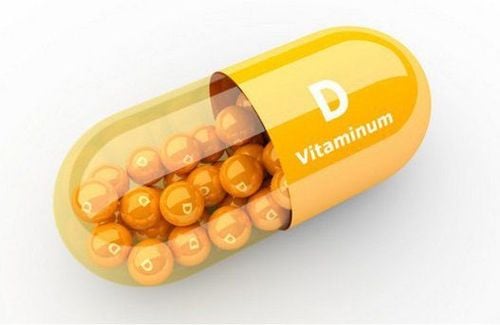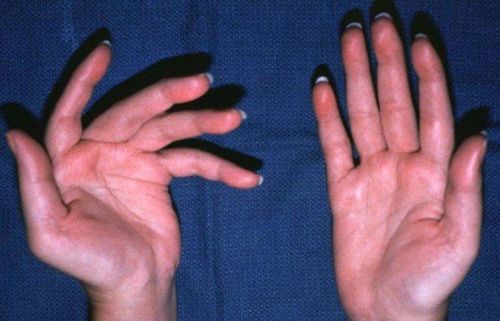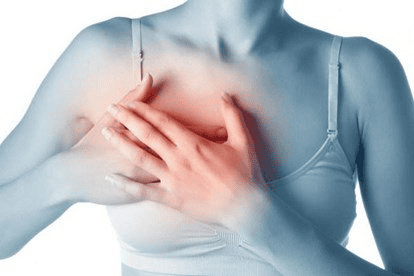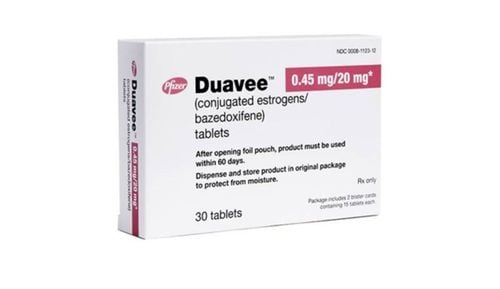This is an automatically translated article.
Vitamin D also known as the sunshine vitamin, is not only necessary for bone growth, but also many other health benefits. The effects of vitamin D deficiency have been linked to many problems such as depression, osteoporosis, heart disease... especially in women.
1. Vitamin D and Depression
Experts aren't sure if vitamin D deficiency leads to depression and vice versa. But there are some studies that show a link between the two. Scientists are still working on whether increasing vitamin D levels can help reduce symptoms and improve mood.

Mối liên hệ giữa vitamin D và bệnh trầm cảm đang được nghiên cứu theme
2. Fight against the flu
Scientists are still learning exactly how vitamin D affects treatment and protects you from the virus. One study found that taking vitamin D in the winter helped reduce the number of Japanese schoolchildren getting the flu. Clearly this nutrient is an important part of a healthy immune system. Your body won't fight germs well without enough vitamin D.
3. Multiple sclerosis
Studies show that vitamin D can reduce the risk of multiple sclerosis (MS). This is a disease in which the immune system mistakenly attacks the central nervous system. If you already have the disease, some studies have also found vitamin D to play a role in alleviating symptoms or even slowing the progression of the disease.

Bệnh đa xơ cứng có thể được ngăn ngừa nhờ vitamin D
4. Heart support?
There is no solid evidence that vitamin D supplementation reduces the risk of heart attack or stroke. But researchers are looking at it and hope it can ward off heart failure.
5. Limit cancer
Vitamin D may limit the risk of certain cancers, such as colon, breast, and prostate. The cancer risk reduction rate was even better when vitamin D was combined with calcium. In a clinical trial, the risk of cancer among African-Americans was reduced by 23% with vitamin D supplementation.

Vitamin D có tác dụng ngăn ngừa bệnh ung thư vú
6. Good for bones
Healthy levels of vitamin D can slow bone loss, as well as prevent osteoporosis and reduce the risk of fractures. Doctors also use vitamin D to treat osteomalacia, a condition that causes softening, bone loss, and bone pain.
7. The link with weight loss
If you want to lose weight, try a vitamin D supplement. The vitamin D duo with calcium can help keep you from feeling hungry as often, so you eat fewer calories.
8. Vitamin D deficiency
About 4 out of 10 people don't get enough vitamin D, often due to a poor diet and little exposure to sunlight. Low levels of vitamin D can also be caused by a medical condition that prevents you from absorbing it, or problems metabolizing vitamin D from food or sunlight. Factors that increase the risk of vitamin D deficiency include:
50 years of age or older Dark skin Living in a place with little sun, like near the north or south poles Being overweight, obese, or having surgery gastric emptying Milk allergy or lactose intolerance Diseases that reduce the absorption of nutrients in the intestines, such as Crohn's disease or celiac disease Raised in group centers Take certain medications such as anti-seizure medications .

Người thừa cân tăng nguy cơ thiếu vitamin D
9. Foods rich in vitamin D
One tablespoon of cod liver oil contains 1,360 IU of vitamin D. Alternatively, you can also try other vitamin D-rich foods like swordfish, salmon, tuna and sardines. Orange juice and dairy products, such as yogurt and milk, are also good choices. Similarly, beef liver, egg yolks, and vitamin D-fortified cereals are all good suggestions.
10. Sunbathing
Using sunscreen can also interfere with vitamin D absorption, but giving up sunscreen significantly increases the risk of skin cancer. Therefore, you should look for other sources of vitamin D in lieu of prolonged and unprotected sun exposure.
It is important to protect your skin from ultraviolet rays from the sun. But the body also needs some sunlight to make vitamin D. Try sun exposure for 15-20 minutes a day in the early morning or late afternoon, 3 times a week.

Tắm nắng khoảng 15 phút - 20 phút giúp hấp thụ vitamin D
11. Essential for menopausal women
Vitamin D plays an important role for postmenopausal women over 50. As you age, your body becomes less able to activate vitamin D and absorb calcium, leading to an increased risk of osteoporosis. Calcium may lose its effectiveness if there is a vitamin D deficiency or low estrogen levels. Studies have shown that a diet rich in calcium and vitamin D can help limit some of the symptoms of hormonal changes, such as irritability and anxiety.
See more: Why do menopausal women need vitamin D supplements?
12. Vitamin D and Diabetes
Getting enough vitamin D is also linked to the body's ability to use insulin. According to studies, the influence of vitamin D not only helps the body use insulin more efficiently, but can also prevent and minimize type 1 and 2 diabetes.
12 facts above give you a look overview of Vitamin D. Our body cannot produce vitamin D on its own, but only through sunlight, diet and fortified vitamin D intake. Although everyone needs a certain amount of vitamin D, deficiency is increasingly common and should be given more attention.
Please follow the website: Vinmec.com regularly to update many other useful information.
Please dial HOTLINE for more information or register for an appointment HERE. Download MyVinmec app to make appointments faster and to manage your bookings easily.
Reference source: webmd.com













